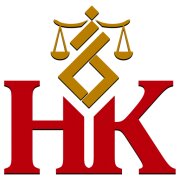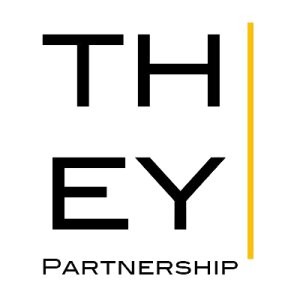Best Antitrust Lawyers in Indonesia
Share your needs with us, get contacted by law firms.
Free. Takes 2 min.
Or refine your search by selecting a city:
List of the best lawyers in Indonesia
About Antitrust Law in Indonesia
Antitrust law in Indonesia aims to promote fair competition and regulate business practices to prevent monopolies, cartels, and other anti-competitive behaviors. The main framework governing antitrust activities in Indonesia is the Law Number 5 of 1999 Concerning the Prohibition of Monopolistic Practices and Unfair Business Competition, often referred to as the Indonesian Competition Law. This law is enforced by the Indonesia Competition Commission (Komisi Pengawas Persaingan Usaha or KPPU), which plays a crucial role in overseeing and ensuring compliance with antitrust regulations.
Why You May Need a Lawyer
There are a variety of situations where individuals or businesses might require legal help in antitrust matters in Indonesia:
- Dealing with Investigations: If a business is under investigation by the KPPU for suspected anti-competitive practices, a lawyer can provide guidance and representation.
- Merging and Acquisitions: Companies planning mergers or acquisitions may need legal advice to ensure these actions comply with antitrust laws.
- Understanding Compliance: Businesses aiming to understand and comply with Indonesian antitrust laws may require legal consultation to navigate the complexities.
- Defending Against Accusations: If accused of violating competition laws, a lawyer can help in mounting a defense and negotiating with the authorities.
- Litigation: In cases of unfair competition practices that harm a business, a lawyer can assist in litigation to seek damages or remedies.
Local Laws Overview
The Indonesian Competition Law is primarily concerned with prohibiting practices that restrict market entry, fix prices, eliminate competition, or create monopolistic environments. Key aspects include:
- Prohibition of Monopolies: Prevents practices that aim to control the production and distribution of goods or services to create monopolies.
- Cartels: Agreements between competitors to control prices or supply are strictly prohibited.
- Abuse of Dominant Position: Companies in a dominant position must not use that dominance to restrict competition unfairly.
- Mergers and Acquisitions: Specific thresholds require notification to the KPPU to ensure such activities do not lessen competition.
- Sanctions and Penalties: Violations of the competition law can result in significant fines, restitution, or other corrective measures.
Frequently Asked Questions
What is the role of the KPPU?
The KPPU is responsible for monitoring, supervising, and enforcing compliance with Indonesia's antitrust laws. Its duties include investigating suspected violations, conducting hearings, and imposing sanctions.
What constitutes anti-competitive behavior?
Anti-competitive behavior includes activities such as price-fixing, bid-rigging, market division, and abuse of a dominant market position, among others.
How can a business ensure compliance with antitrust laws?
Businesses can ensure compliance by conducting regular audits, engaging legal experts for guidance, and training employees about legal obligations and competitive practices.
What steps should be taken if the KPPU starts an investigation?
If the KPPU initiates an investigation, it is crucial to consult with an antitrust lawyer who can provide advice on legal rights and responsibilities during the investigation process.
Are all mergers and acquisitions subject to KPPU review?
No, only those that meet specific asset or sales thresholds require review and approval by the KPPU to ensure they do not adversely affect market competition.
What penalties can be imposed for violating antitrust laws?
Penalties can include substantial fines, orders to cease certain activities, and occasionally, recommendations for business restructuring to restore competitive conditions.
Can individuals report violations of antitrust laws?
Yes, individuals or businesses can report suspected violations to the KPPU, which will then assess whether to initiate an investigation.
Is it possible to appeal a KPPU decision?
Yes, businesses can appeal to the commercial court if they disagree with the KPPU's decision or penalties imposed.
How long does a KPPU investigation take?
The duration of an investigation can vary, depending on the complexity of the case, but generally, it spans several months.
What is the threshold for mandatory notification of mergers to the KPPU?
The thresholds for mandatory notification involve combined asset values and sales turnovers met by the businesses involved. It is essential to consult the latest KPPU regulations for precise numbers.
Additional Resources
For further information and guidance on antitrust issues in Indonesia, consider the following resources:
- Indonesia Competition Commission (KPPU): The primary body responsible for antitrust enforcement, offering resources and publications.
- Ministry of Trade: Provides information on market regulations and compliance requirements.
- Legal Firms Specializing in Competition Law: Numerous firms provide expert guidance and representation in antitrust matters.
- Industry Associations: These often provide collective insights and updates on regulatory changes affecting competition in various sectors.
Next Steps
If you require legal assistance in antitrust matters, consider the following steps:
- Identify the Issue: Clearly define the antitrust problem or question you are facing.
- Research Potential Lawyers: Look for legal professionals or firms that specialize in competition and antitrust law in Indonesia.
- Schedule Consultations: Meet with potential legal advisors to discuss your situation and assess their understanding and approach.
- Evaluate Expertise: Choose a lawyer with significant experience in handling cases similar to yours and a strong track record in dealing with antitrust issues.
- Follow Legal Advice: Once you have engaged a lawyer, work closely with them to address your legal challenges efficiently and comply with all regulatory requirements.
Lawzana helps you find the best lawyers and law firms in Indonesia through a curated and pre-screened list of qualified legal professionals. Our platform offers rankings and detailed profiles of attorneys and law firms, allowing you to compare based on practice areas, including Antitrust, experience, and client feedback.
Each profile includes a description of the firm's areas of practice, client reviews, team members and partners, year of establishment, spoken languages, office locations, contact information, social media presence, and any published articles or resources. Most firms on our platform speak English and are experienced in both local and international legal matters.
Get a quote from top-rated law firms in Indonesia — quickly, securely, and without unnecessary hassle.
Disclaimer:
The information provided on this page is for general informational purposes only and does not constitute legal advice. While we strive to ensure the accuracy and relevance of the content, legal information may change over time, and interpretations of the law can vary. You should always consult with a qualified legal professional for advice specific to your situation.
We disclaim all liability for actions taken or not taken based on the content of this page. If you believe any information is incorrect or outdated, please contact us, and we will review and update it where appropriate.
Browse antitrust law firms by city in Indonesia
Refine your search by selecting a city.















